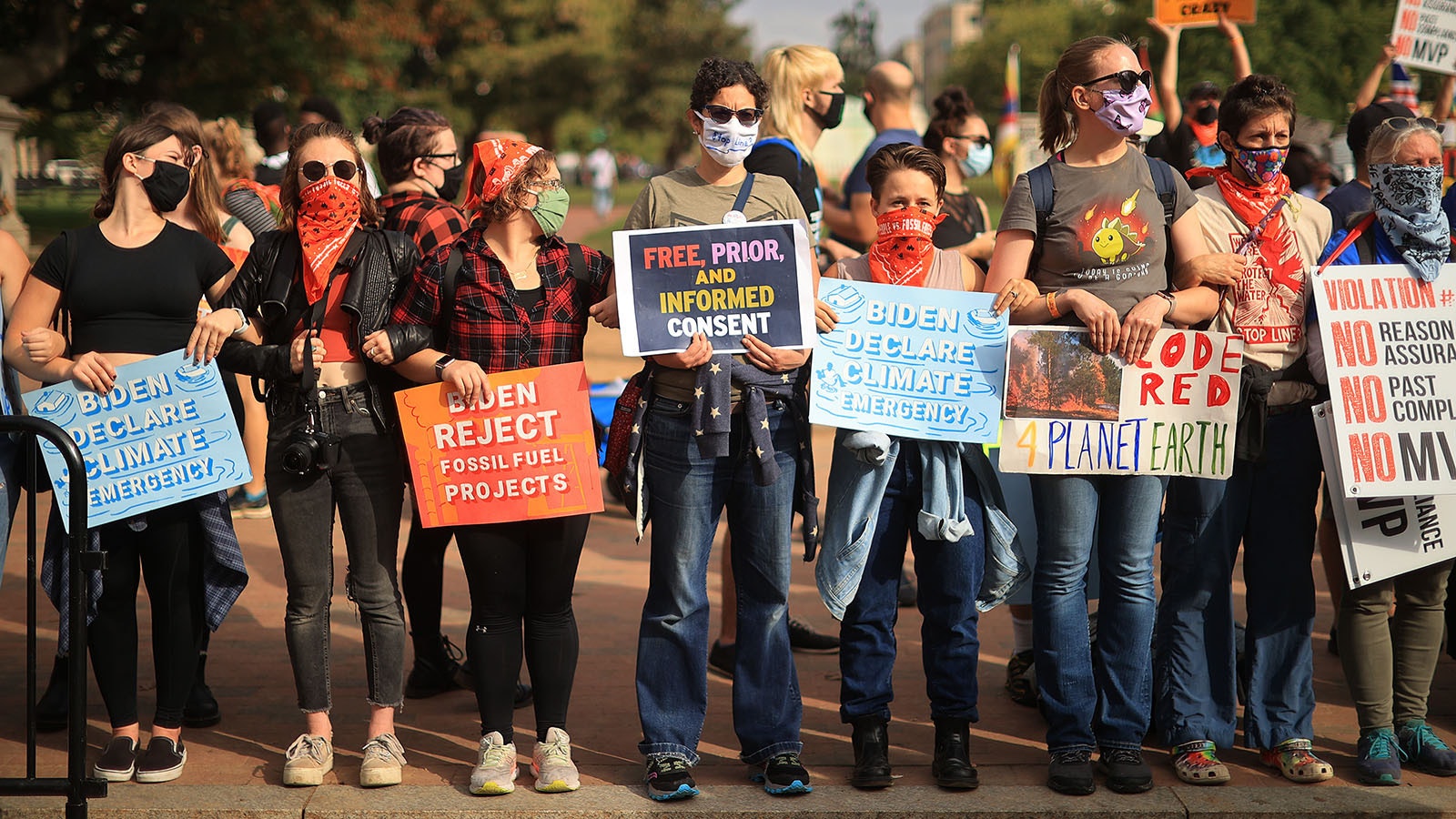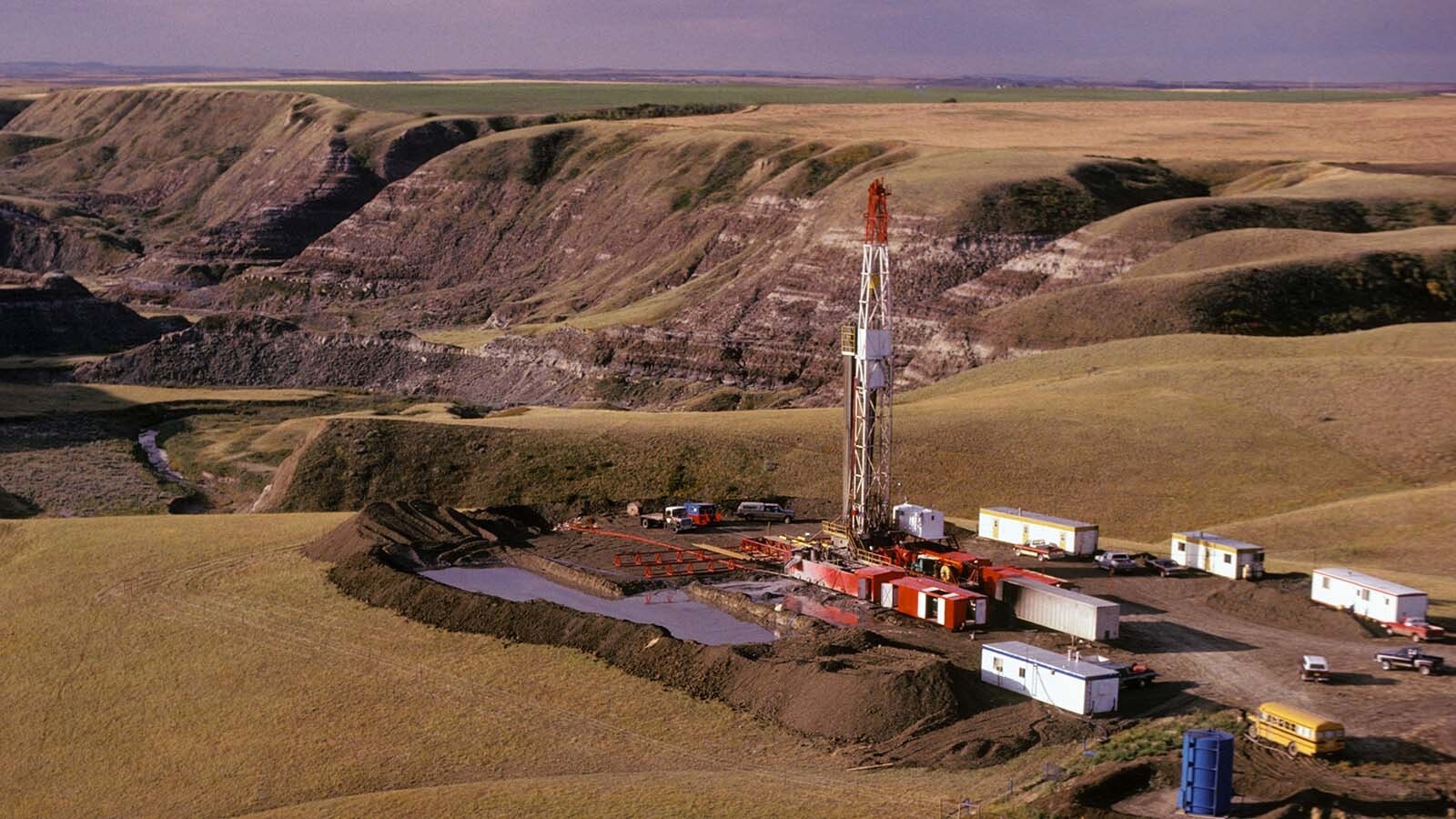President Joe Biden made a campaign promise to “end fossil fuel.” While U.S. oil production nears its pre-pandemic levels, the president hasn’t made it easy for the industry.
In November, the Institute For Energy Research (IER) produced a list of 125 actions the Biden administration and Democrats on state and federal levels have taken against oil, gas and coal. The IER, a free-market energy research nonprofit, recently updated the list to include the most recent actions through April.
Alex Stevens, manager of policy and communications for IER, told Cowboy State Daily he could have easily compiled a list of 160 actions or more, but he wanted a round number.
Olive Branch?
Stevens said the update coincides with a shift in the administration’s energy policies in the past few months. With the presidential election approaching next year, he said the administration is trying to appear more moderate on the issue.
“The approval of the Alaskan Willow Project, for example, was the administration extending a sort of olive branch,” Stevens said. “But don’t buy into the narrative that Biden is a moderate on these issues.”
Rick Whitbeck, Alaska state director for Power The Future, a national nonprofit advocacy for the energy industry, told Cowboy State Daily the approval of the Willow project was a win for Alaska and energy consumers, but in the context of other actions the administration has taken, its impact will be limited.
While approving the Willow project, the administration also issued new rules blocking 13 million acres of the 23-million acres in the National Petroleum Reserve-Alaska (NPR-A).
“Even a stopped clock is correct twice a day, as Biden surprised nearly everyone with Willow’s approval,” Whitbeck said, but the 13 million acres of the NPR-A off limits to the industry represent 15-20 billion barrels of oil and nearly 100 trillion cubic feet of gas.
“Make no mistake — Willow is a win for America, but at what cost?” Whitbeck said.
From Day One
The first four actions on the list came on the day Biden took office — Jan. 20, 2021.
He canceled the Keystone XL pipeline, placed a moratorium on all oil and natural gas leasing in the Arctic National Wildlife Refuge, restored and expanded a policy to measure the social cost of carbon and revoked Trump administration executive orders that expanded the ability for America to produce energy domestically.
Just a week later, he placed a moratorium on new oil and gas leases on public lands. With most oil and gas production in Wyoming taking place on public lands, the moratorium was a blow to Cowboy State producers.
The updated list carries it past November 2022 up to the middle of April. In March, New York banned natural gas stoves in new buildings.
In April, the administration placed emissions mandates on cars to encourage adoption of electric vehicles. In April, Biden vetoed an anti-ESG bill that would have rescinded a Department of Labor rule allowing fund managers to consider progressive political values in retirement fund investing.
Wyoming Impact
Looming over Wyoming, which is heavily dependent on fossil fuels for its economic wellbeing, is what will happen should Biden be reelected and no longer have to appear moderate on energy.
Ryan McConnaughey, spokesperson for the Petroleum Association of Wyoming, told Cowboy State Daily that a second term for the Biden administration will allow those who want to eliminate oil and gas from the energy mix to pursue that goal.
“And there is not a viable alternative in place to make up for the energy that the industry supplies,” McConnaughey said.
Investors, meanwhile, are also factoring the risk, he said, which is not helping the industry.
On the 2020 campaign trail, Biden said he’d retire the oil and gas leasing program. The moratorium he enacted during his second week in August faced legal challenges, and leasing has continued at a much slower pace than previous administrations. The Inflation Reduction Act also increased costs for drillers.
“It made it harder and more heavily regulated for our operators to drill or simply get permits. It’s put the state of Wyoming at a disadvantage,” Rep. Cy Western, R-Big Horn, told Cowboy State Daily.
Nearly Energy Independent
Western said that under the Trump administration, America was nearly energy independent, meaning the nation’s producers could meet domestic demand.
“Now we’re in a position where we’re buying Middle Eastern oil from countries that aren’t exactly our allies, versus producing this energy at home,” Western said.
Besides the geopolitical disadvantage it puts the country in, Western said it means America is consuming oil from countries with lax environmental and labor regulations.
McConnaughey said it’s unlikely that the administration, even with a second term, would go so far as eliminating public-land leasing altogether.
“If that were to happen, we as an association would vigorously defend the law,” he said, referring to the 1920 Mineral Leasing Act that requires the federal government to offer quarterly lease sales.
A ban on federal leasing would also ruin the economy of Wyoming.
“It would be devastating,” McConnaughey said.
Contact Kevin Killough at Kevin@CowboyStateDaily.com





